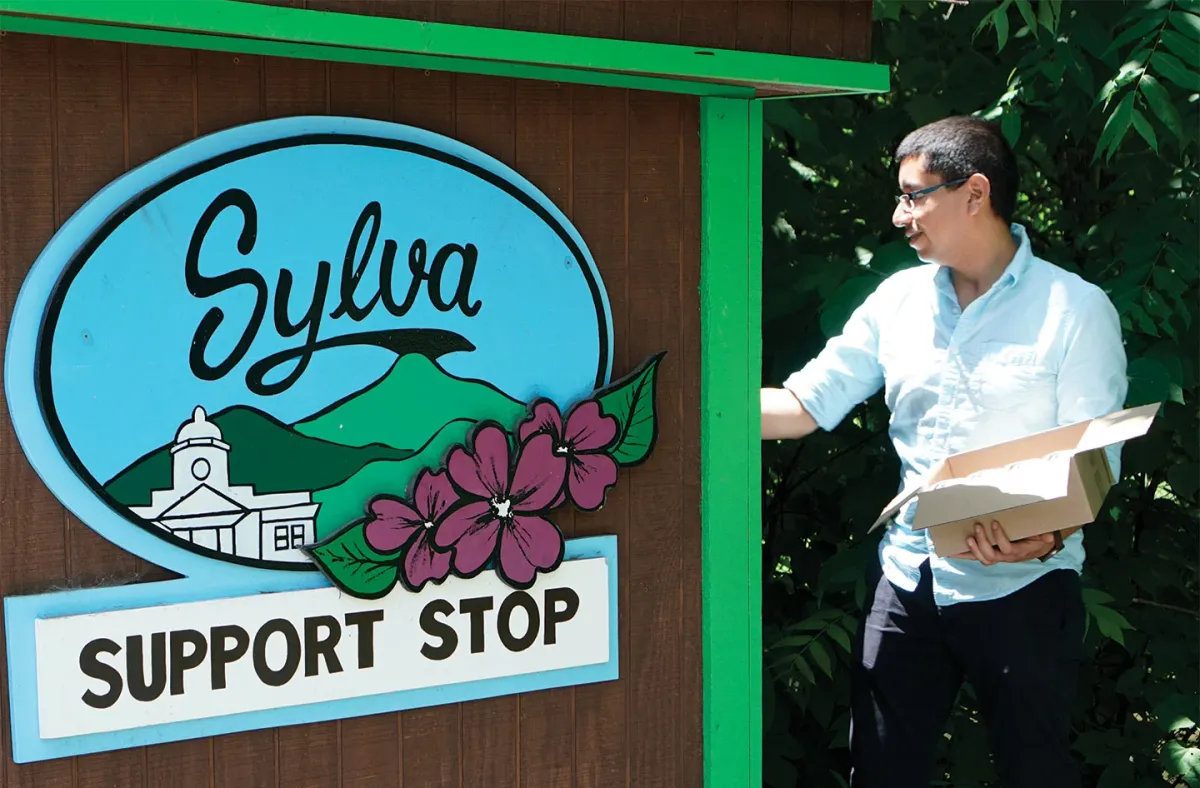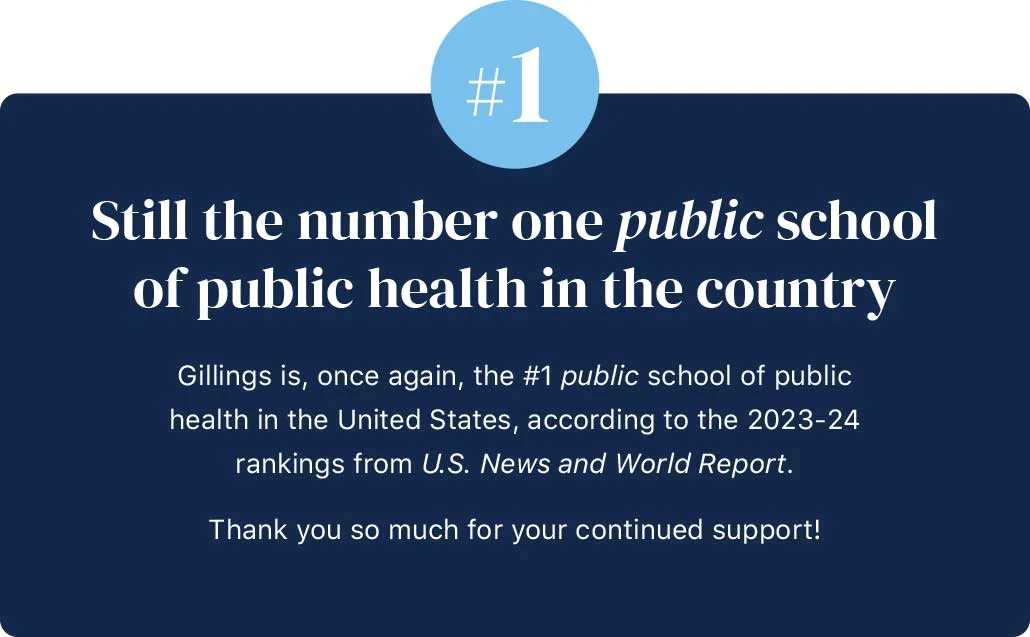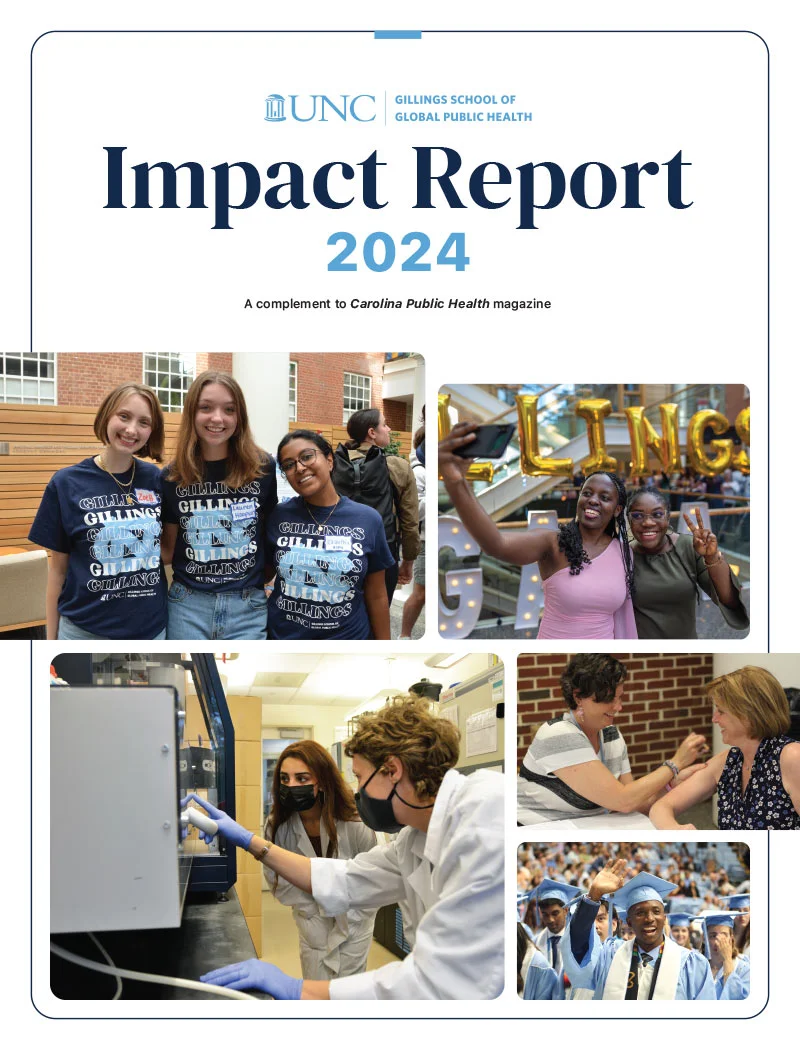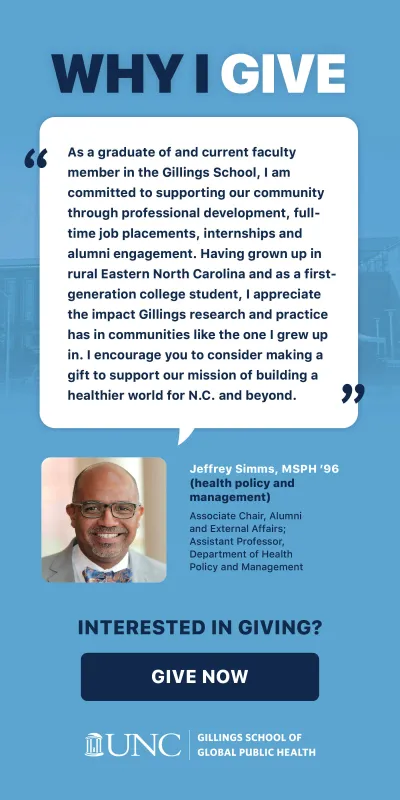Gillings students build local public health connections through new Partnership Hubs
Ryan Bostic, right, works alongside fellow practicum student Amber Chapman.
The Gillings School's new Public Health Partnership Hubs allow students to turn their classwork into real-world change right here in North Carolina.
The UNC Gillings School of Global Public Health’s new Public Health Partnership Hubs allow students to turn their classwork into real-world change.
by Ethan Chupp, UNC Gillings School Communications Fellow
Beginning in 2023, the Partnership Hubs represent a model for long-term collaborative partnership with local North Carolina communities, which is one of the goals identified in the Gillings School’s strategic plan for practice.
Located in Cumberland, Durham, Halifax and Jackson Counties, the hubs span the state’s diverse geography. Through these hubs, the Gillings School aims to embed students, faculty and staff to work alongside community members to achieve their desired community outcomes. This summer, four Master of Public Health (MPH) students completed their practica through three of the hubs at county public health departments. Their projects are wide-ranging, from tracking opioid overdose reversals to creating data briefs for community health improvement plans.
Nobody operates on their own, because together we’re much more successful in the outcomes that we hope to achieve.
Ryan Bostic worked with the Jackson County Department of Public Health, consolidating Narcan opioid reversal data into an innovative mapping tool that tracks overdoses and successful reversals. The hubs allow students to link their public health interests with professional experience.
“It was my background in statistics and my interest in substance use that brought me to public health,” said Bostic, an MPH student in the Gillings/UNC-Asheville Place-Based Health concentration. “And here, I’m not just an intern; I’m kind of treated as a peer.”
The opioid crisis has strained the resources of rural counties like Jackson. One overdose call may require as many as 10 responders from the police department, fire department and emergency medical services. Bostic is hopeful that this project can show that the availability of Narcan has driven down the number of overdose calls in Jackson County and the number of personnel needed to respond.
“If Narcan is saving the county money, that can help even more people get behind it,” said Bostic.
Albert Chow also worked with the public health department in Jackson County on a communications campaign focused on suicide prevention. Like Bostic, the hub helped him bring his public health interests into practice. The first part of this campaign was a survey of first responders in the county to gauge interest in local suicide prevention training.

Albert Chow restocks the Sylva Support Stop. Sylva is a town in central Jackson County, N.C.
“This project came from my experience training as an EMT, seeing how mental health emergencies get treated. Some calls required more debriefing than others and would benefit from a more cohesive, integrated response across the department,” said Chow, an MPH student in the Gillings/UNC-Asheville Place-Based Health concentration.
Chow also developed communication materials for county residents influenced by the 988 Suicide & Crisis Lifeline. The campaign aims to inform the public about mental health resources available in Jackson County. Chow discussed drawing on the experience of other counties, including neighboring Haywood County. Through the hub, Chow has been impressed with the collaborations central to public health.
“Nobody operates on their own, because together we’re much more successful in the outcomes that we hope to achieve,” said Chow.
The Gillings School is making a five-to-ten-year commitment to each of these hub locations to help them make the sustainable changes they care about. With this ongoing commitment, the School can help communities take something from concept to implementation to evaluation and to improvement with sequential student practicum projects and faculty technical assistance.
“Being the number one public school of public health in a state that ranks 32nd in terms of health makes this initiative particularly important. Gillings School students, faculty and staff can be a helpful resource in our own backyard. Improving community health and giving our students hands-on experience is a win-win, and we hope these experiences will entice our students to work here long-term,” said John Wiesman, DrPH, associate dean for practice at the Gillings School, whose team spearheaded the creation of the Partnership Hubs.
The Partnership Hubs are relatively new. As these partnerships build, more students will explore their interests and test out future careers. The hubs will continue to build long-standing relationships between the Gillings School and health departments statewide, driving positive change in public health practice.




